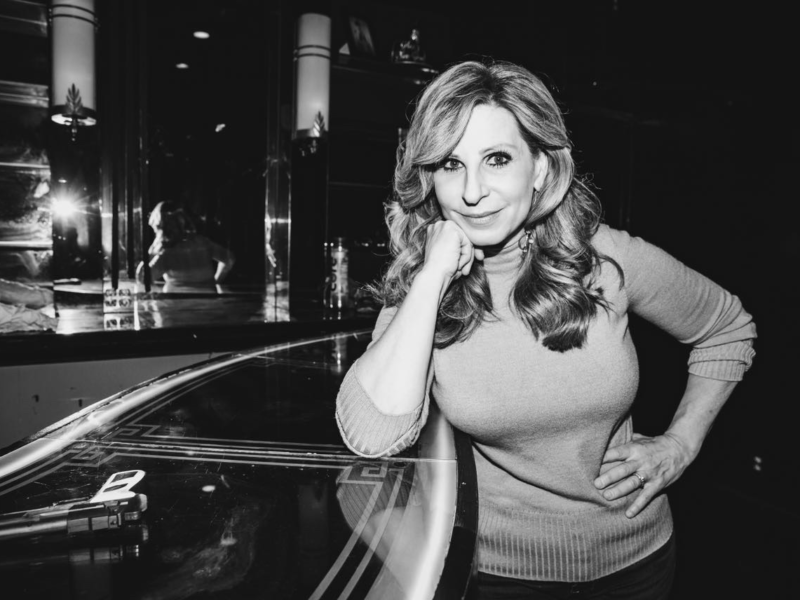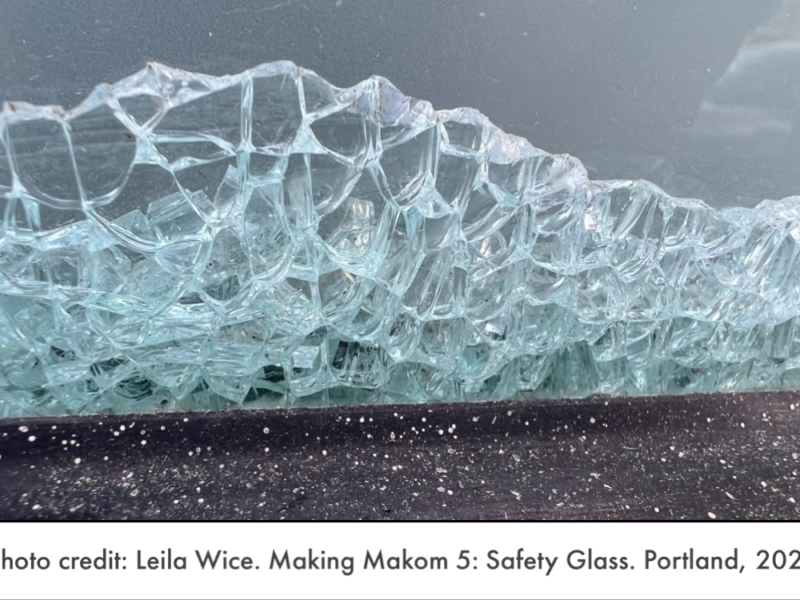“Oregon is the creative sweet spot,” declares Wendy Marcus, editor and founder of the literary magazine Drash. The latest issue Drash: Northwest Mosaic. Vol. 6, which came out in May, features nine Oregon writers, a fourth of all the contributors.
Marcus describes Drash, which published its first issue five years ago, as a “literary review filled with poetry, prose and photos encouraging the redemptive nature of life from Jewish and other perspectives.” The word drash – which translates as search, explanation or interpretation – is often used in connection with biblical or Talmudic discussions. While searching for a title for her magazine, Marcus drew inspiration from the four levels of Torah study. “I really like the way talking about a story becomes a story in itself. Drash, to me, is the level where we sit around the fire and tell stories to one another.”
Four of the Oregonians included in this issue, Lisa Tall Anolik, Andrine de La Rocha, Hannah Goldbaum and Howard Jay Patterson, submitted what Marcus says are “really stellar personal essays.” Vol. 6 also features poets Marilyn Johnston, Carolyn Martin, Sharon Lask Munson and David Rutiezer, and short story writer David Fuks.
__________________________________
Andrine de la Rocha
As a Jew by choice, essayist and poet Andrine de la Rocha brings an outsider’s perspective to her work. Her essay, “A Reconstructionist in Williamsburg,” emerged from a class she took on writing Jewish memoirs. “I don’t have a Jewish childhood to draw on, so for me it’s a challenge to pick something from my past; I have less Jewish past than someone who was born Jewish,” de la Rocha explains.
“A Reconstructionist in Williamsburg” chronicles de la Rocha’s encounter with the Hassidic community in the Williamsburg section of Brooklyn. “I’d never been to Williamsburg. I’d read a lot of novels about it, getting inside that secret life, and I wanted to experience it,” de la Rocha recalls. “We went to a bookstore, and it was a really amusing experience of being this clearly – according to a certain standard of appearance – not Jewish. There was no blending in, even if we’d tried. There were a lot of people clearing the aisles after we left, as if to say, ‘I don’t want to touch that.’”
“A Reconstructionist in Williamsburg” is de la Rocha’s first submission to Drash; she says being published in a Jewish literary journal provides a strong sense of affirmation. “I think I’ll always feel I have to prove myself in some way, and I wish that wasn’t so, but it is. It’s nice to have this piece of writing, which is good writing, published by Drash. It gives me ‘cred’ as a writer and as a Jew.”
Howard Jay Patterson
Like de la Rocha, Howard Jay Patterson has a unique take on his Jewish identity. Born to a Jewish mother and a half-Jewish, half-Scots-Irish Presbyterian father, Patterson, a founding member of the theatrical juggling comedy and musical troupe The Flying Karamazov Brothers, inhabits many worlds. “In school, I hung out with both the nerds and the political/hippie/druggie kids; today I’m a vaudevillian and a scientist,” he explains. “And I’m a writer who among many other things is Jewish, but I wouldn’t describe myself as a Jewish writer any more than I would say I was a Jewish juggler.”
Patterson’s essay in Drash, “Oy, Oy, Oy, I’m a Cowboy,” juxtaposes his childhood memories of riding horses with his late father, Carroll, with a humorous moment from his Karamazov days on the set of the 1985 film The Jewel of the Nile. “Horseback riding was my earliest form of connection with my dad; that was how we became close,” Patterson explains. “After he died, I had all these conversations with people about his life. I was really struck by the distance he’d come from his childhood to mine. Writing that story was a way of honoring the journey he made. I’ve become more at peace with our relationship.”
“Oy, Oy, Oy, I’m a Cowboy” is Patterson’s first published work. “It’s an important milestone for me, and very reaffirming.”
David Fuks
David Fuks, CEO of Cedar Sinai Park, is a man of many facets. “I’m a writer, first and foremost,” Fuks declares. “My identity as a writer is as important to me as my professional identity.” Fuks’ work has appeared in several publications; his short story “The Voice of Cod” marks his third appearance in Drash.
Fuks began writing as a teenager; putting words to paper gave him a voice to express all the perceptions and emotions he felt but had not, up to that point, been able to put into words. “I’ve always written with the hope of being read aloud,” says Fuks. “When somebody reads me, I hope they read my stories aloud, because I think it’s a better experience that way.”
Humor remains a vital element in his work, especially in “The Voice of Cod,” which was inspired by a photo in the Forward of a Hassid holding a fish. “The caption was that the fish was heard to be speaking Hebrew, and was channeling a dead yeshiva student from Toronto. I figured there had to be a story in there somewhere.”
“I think human beings are hardwired for stories,” Fuks continues. “We’ve been sitting around sharing stories since we figured out how to manage fire; it’s a key aspect of how we communicate. Look at Torah: it’s not the details and numbers but the stories that stand out. Why did God choose to reveal Himself in stories? I think it’s because God is seeking a relationship with human beings, so stories are a natural medium.”
Sharon Lask Munson
Like Fuks, Sharon Lask Munson is a Drash veteran; her poetry was included in the 2009 and 2010 issues. An accomplished writer, Munson has published two full-length books of poetry. Her work has also been featured in a number of literary journals and anthologies. Even so, Munson feels a special thrill about seeing her work in Drash. “Maybe it’s the Jewish element, which is my heart. To be in a Jewish journal, it’s like I’m home,” she explains.
Munson began writing poetry exclusively in 1994, when she relocated her elderly mother to Oregon. “She had dementia, and in poetry I was able to express what I was going through with Mother better than in prose,” Munson says. Her latest contribution to Drash, “Unbound, But for the Sabbath Shawl,” describes a conversation she had with her mother on her mother’s 90th birthday. Today, Munson eats, sleeps and breathes poetry. “It’s the first thing I think of in the morning and the last thing at night.”
Writing is a solitary occupation, and especially so for Munson, who lives in Eugene. “Sometimes when I read my work at an event, I feel that the audience doesn’t always get it because they don’t have a Jewish sensibility,” she says. “Sometimes I write something funny and nobody laughs. Meeting Jewish poets, that’s the highlight for me,” says Munson. “The writing, the books, the poetry, it’s the best time in my life.”
Drash is available for purchase at www.templebetham.org/music/drash/
Elizabeth Schwartz is co-host of the Yiddish hour on 90.7 FM KBOO Community Radio and a freelance writer living in Portland.





